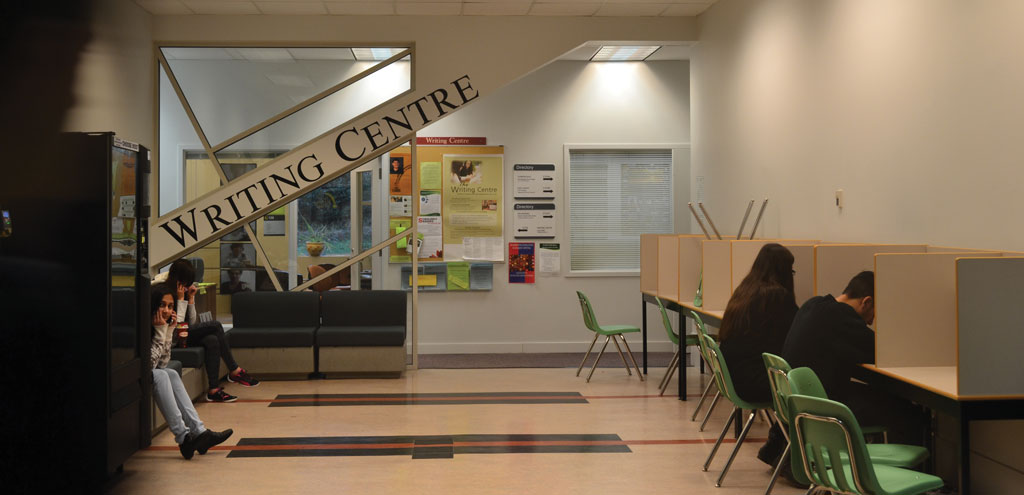By Michael Scoular (The Cascade) – Email
Print Edition: April 8, 2015
Alumnus Jack Brown has discontinued his petition regarding administration’s decision to open an Academic Success Centre in place of the current Writing Centre, in which he described the situation as “an apparent breach of process.”
Following a meeting with Adnan Habib, a litigator and managing partner from Baker Newby who represented UFV, Brown says he attempted to settle the matter without going to trial, but after a proposal to bring the matter before the APPC was rejected, and UFV indicated it would pursue legal costs, Brown says he had to abandon his attempt to bring the decision before the provincial Supreme Court.
“I sought legal advice and was advised to offer a permanent discontinuance of the petition in exchange for an agreement from UFV not to pursue me for all costs,” he alleges in an email. “Not being a lawyer, and not having access to a managing partner at a law firm, I was not in a position to continue to pursue my petition.”
Legal counsel for UFV Maureen Murphy says the particulars of conversations between the two parties are not disclosable.
“I can’t really comment on the costs — the matter never proceeded, it never went anywhere,” she says, referring to the discontinuance of Brown’s petition. “I can comment, though, that in any sort of proceeding, there is an option of either party to seek costs against the other, and the determining factor of whether or not costs are assessed is with the court. We never got to that part. Could there be the potential for it? Absolutely, but that potential goes both ways, for both parties.”
VP students Jody Gordon adds that the Writing Centre was a topic on the APPC agenda almost a month before Brown filed his petition, leading to, two meetings later, a motion to recommend the postponement of the changes to the Writing Centre.
Brown says that this type of administrative decision has precedence with the Supreme Court.
“Although I have agreed to drop the matter, I am still quite confident in my legal argument,” he says, citing a 2014 case between Capilano University and the faculty association at the institution.
In that case, the university discontinued multiple courses and programs, including studio art and computer science, without consulting its Senate. The court ruled in favour of the Faculty Association, based on interpretation of the University Act. Under the same section of the act, “libraries and resource centres” must follow the same process; interpretation of this language was a major part of the APPC meeting called specifically to address the Writing Centre decision.
Gordon says she did not anticipate this change to be controversial, but that this debate is allowing for a discussion about advice and input at the university.
“This just happens to be one of the cases that helps us test those waters,” she says.
At the APPC meeting, some members asked if, due to the steps already taken, reversing the change would be too complicated to even be possible. Gordon says, budget-wise, it is not.
“Instead of configuring the budget [in a] way that would have included an Academic Success Centre and some support for writing within the College of Arts, it would be, ‘We’re going to continue with the Writing Centre, and the budget goes this way and not that way,’” she says. “I think that’s probably something that happens at a lot of institutions: they have moments where they suddenly have to make an adjustment on the fly.
“I don’t see why we couldn’t file something with the board with advice from Senate and then move it off to the government to show we had to make a mid-term adjustment to our budget.”



